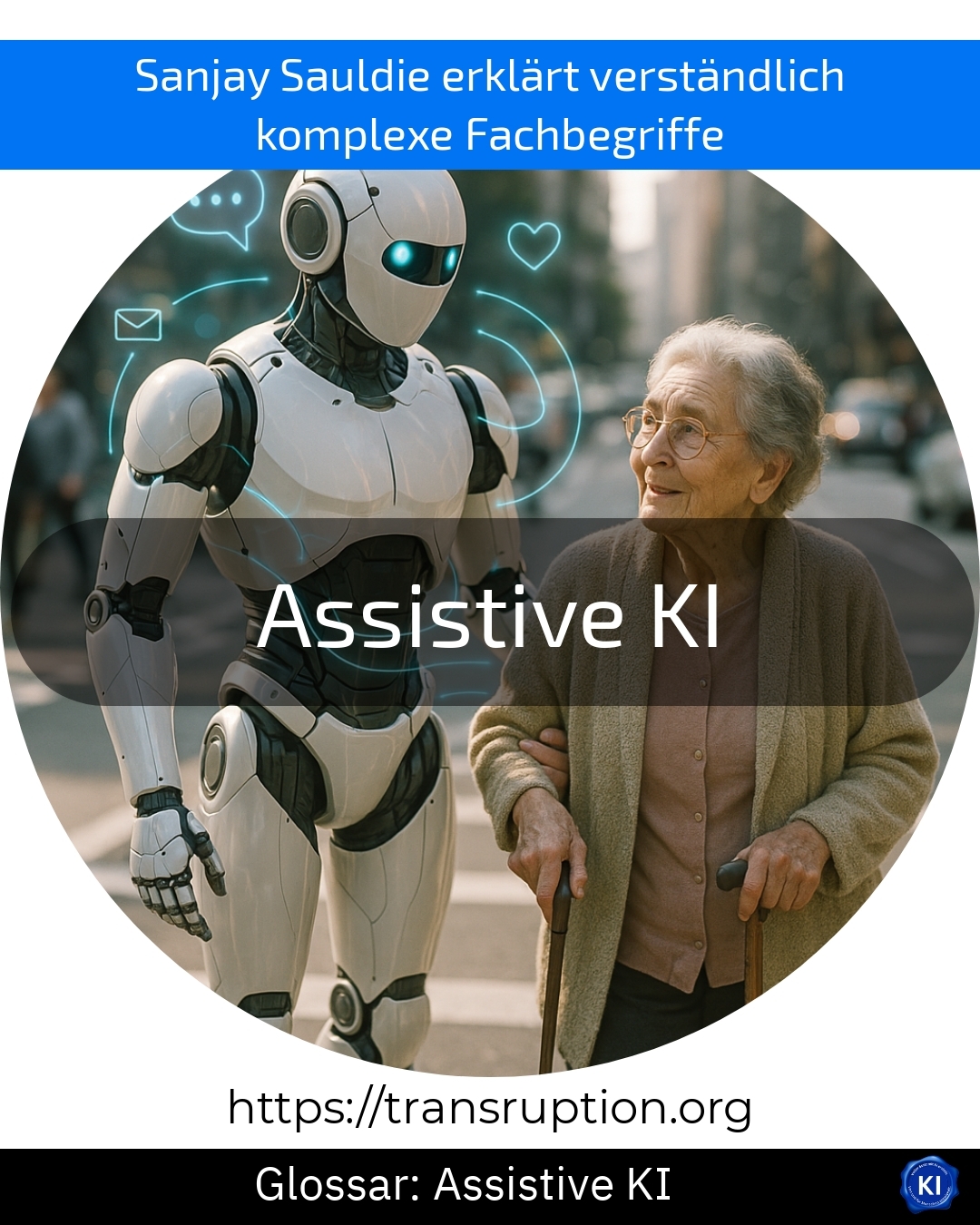Assistive AI is a term that is particularly at home in the fields of artificial intelligence, digital society and automation. It refers to intelligent systems that support people in their everyday lives or at work. In contrast to AI that acts completely independently, assistive AI always works together with the user and helps to make tasks easier, faster or more convenient.
An illustrative example of assistive AI is speech recognition on a smartphone. If you dictate a message or create an appointment using a voice command, the assistive AI recognises your voice and converts the words you say into text. This simplifies and speeds up everyday tasks.
Assistive AI is already being used in many areas: from the automatic translation of languages and reading functions for the visually impaired to smart recommendation systems in online shopping. For companies and decision-makers, assistive AI offers the opportunity to make processes more efficient and improve the user-friendliness of their offerings. This makes it an important component of the digital transformation.















